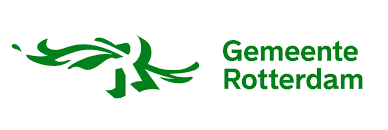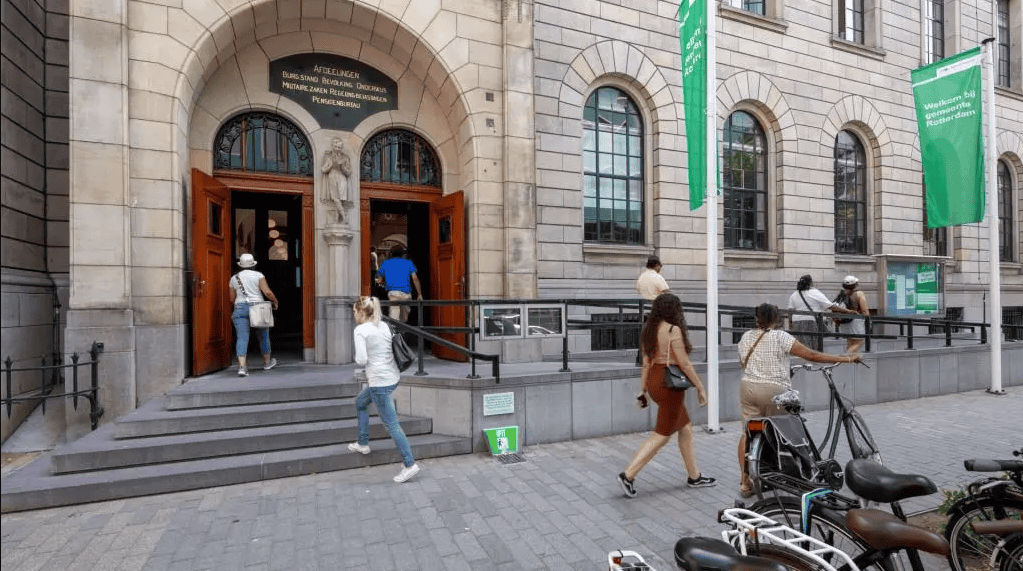About the municipality of Rotterdam
The city of Rotterdam is the beating heart of the Dutch economy. The municipality is responsible for providing reliable public services to its 600.000 citizens, including public housing and financial services.
The municipality aims to offer a state-of-the-art online experience to all residents of Rotterdam. Its digital first strategy and dedication to technological innovation led to the city of Rotterdam being the first Dutch municipality to succeed in offering digital identities to its citizens.
The problem
“We are aware that digital identity wallets for all European citizens are coming, and that they will be playing a key role in the lives of citizens in the near future,” says Stefan van Ingen of the municipality of Rotterdam. As a Product Manager Identity & Access Management at Gemeente Rotterdam, he is well aware of the fact that strong and secure digital identities, compliant to the eIDAS 2.0 regulation, are a necessity for digitalization and innovation in the public sector. “When citizens communicate with the government, they often have to provide their personal information over and over again. Because CRMs are separated and data sharing between different departments is subject to all sorts of rules and restrictions. This can drive citizens crazy.”
The direct reason for the municipality of Rotterdam to start working with Ubiqu on a digital ID wallet for all its residents has its origins in the city’s social housing market. “Rotterdam has a housing shortage, like almost all Dutch cities,” Van Ingen explains. “That means long waiting times for rental housing. Unfortunately, we noticed that discrimination started to play a role in this. People who want to rent a house must provide all kinds of personal data. But we saw that this data then led to certain minorities having a reduced chance of being offered housing. Understably, this led to deep frustration and a sense of injustice among those affected, as they realized their personal data was being used to systematically exclude them from housing opportunities.”
To address that issue, Van Ingen looked for a solution through technological innovation: “Could we implement an innovative new feature to simultaneously make life easier for citizens, and also solve this problem of discrimination?” The search for such a technological innovation eventually led to Ubiqu’s digital wallet.

The solution
“When we talk about citizens’ personal data, all sorts of issues immediately arise,” says Van Ingen. “There are privacy laws that limit what data governments can share. In addition, personal data must be stored and transmitted one hundred percent securely. Moreover: as a municipality, you want to appear trustworthy and reliable.”
Together with Ubiqu, the municipality found the key to success in an outstanding user experience. Van Ingen: “When you offer real added value to citizens, and genuinely make their lives easier, it helps to break down barriers. We therefore put user experience central. How easy would it be, as a citizen, to submit your diplomas to an employer at the push of a button, from your smartphone, when you apply there? Or in our case: apply for a rental property at the push of a button, without having to reveal all your data from the population register in the process?”
The municipality is looking to deploy Ubiqu’s digital wallet as a solution for citizens to apply for rental properties. Ubiqu’s solution offers an outstanding user experience, without sacrificing anything in terms of cybersecurity. It makes citizens’ lives fundamentally easier, but is fully secure at the same time.
Citizens will soon be able to use the wallet to respond anonymously to homes, with housing landlords receiving only the information they really need. This includes, for example, data about a potential tenant’s financial situation, but nothing about ethnicity or other discrimination-sensitive characteristics. This approach aligns perfectly with the European Commission’s wish for data minimisation within the EU, meaning that any digital service should collect only the absolute minimum of data required to provide the underlying service.
With the premise of data minimisation being fundamental to Ubiqu’s identity wallet, Ubiqu turned out to be the perfect match for the city of Rotterdam to cooperate on digital innovation. Van Ingen: “Quickly supplying your bank details if you want to rent a house, without having to worry about your privacy: that’s putting user experience first. As far as I’m concerned, this is a textbook example of how to deploy technical innovation, in this case ID wallets, in a way that really makes citizens’ lives easier. And not only that of those citizens: it offers lots of benefits to us as a municipality as well. Everyone wins.”
The future for the municipality of Rotterdam
One use case leaves Van Ingen wanting more. Together with Ubiqu, he and his team are already developing many more use cases involving the digital ID wallet. The main aim is to proactively provide digital government services, by anonymously analyzing credentials to suggest relevant services or actions to citizens. Ideally, all use cases would eventually be included within one overarching platform, creating one easy workflow for all government services.
“Not only for citizens, but also for companies,” Van Ingen says. “Behind every business there is an entrepreneur, who is also a resident of your city and whose business life we want to make more pleasant. We think big and we continue to put user experience first.”
Together with Ubiqu, the municipality of Rotterdam is working on what Van Ingen calls the ‘digital economy for citizens and businesses’. “How great would it be if in the future you can buy a house or business premises from behind your kitchen table? And to do it digitally, securely and completely reliably? I’m continually spotting use cases where we can replace tedious procedures with user-friendly processes.”
Van Ingen’s vision for the future? “One wallet for everything. Adding genuine simplicity and added value. That requires, in our cooperation with Ubiqu, that we continuously mix innovations. Don’t fight against deadlines, but develop valuable use cases from needs of citizens and implement them quickly. The digital revolution is in our own hands.”

Stefan van Ingen
— Product Manager Identity & Access Management,
the municipality of Rotterdam
The solution

“Ubiqu has distinguished themselves as a flexible partner with whom we can work together in a professional manner, while keeping communication lines short. The level of expertise is outstanding, and I look forward to a long-term collaboration.”
Stefan van Ingen, Product Manager of Identity & Access Management
at the municipality of Rotterdam
